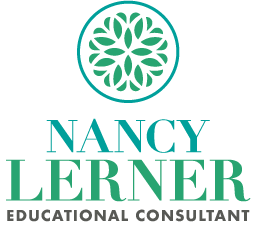Is my child ready for kindergarten?
Across the country, the starting age for kindergarten varies. In the public education system in Ontario, a child must be 4 years of age before December 31 of the starting school year. Many parents are questioning whether their children are ready to start school, especially those children with a December birthday. One of the concerns is whether the child, often age 3 when school begins, is ready for the busy, dynamic days of full-day kindergarten.
There are a variety of studies and opinions about readiness for kindergarten. Too often parents focus on the academics of the curriculum, and are not well-informed as to the significant, developmental importance of social and emotional readiness. Below is a list of general facts about starting Junior Kindergarten. Please use this as a guideline, asking the administration of your school for more specific details.
Developmentally, children's brains in the early years is still fully forming. Physiologically, most children are not completely ready to learn to read until about the age of 6. While some children can decode ( word read), a child of 4 typically does not yet develop critical, comprehension skills when reading. In fact, in some countries in the Netherlands, formal reading is not introduced until the age of 6. Their school systems have high, global rankings.
All children learn to print at their own pace. Many children, mostly boys, are often identified in kindergarten as having difficulty with fine-motor skills. Often, learning and practicing proper pencil-grip, using scissors properly and practice tying shoes are just a matter of that...time and practice. If you feel that your child is not making any progress after several months in kindergarten, you may wish to see a pediatric occupational therapist for an assessment. Their strategies will make a big difference in the classroom and at home. Please note that a child's self-esteem as a learner, at any age, can be directly influenced by fine-motor struggles and the resulting "messy" work.
Oral language development is a cornerstone for almost all other learning, including social skills, reading, written language, and math. If you have concerns about your child's oral language skills- i.e. not yet speaking in full sentences by age of 2, hard to understand, difficulty understanding what people say, please speak to your pediatrician or family doctor. A referral to a speech and language pathologist can be very helpful in diagnosing and providing strategies for age-appropriate language development.
Behavioral challenges are common in kindergarten, especially if your child has not had previous small-group, social experiences. It is important to closely monitor any aggressive or threatening behavior, as well as impulse control issues.
Establish positive communication with your child's teacher, and please understand that the best way to have important, in-depth conversations is by meeting in person, or even chatting over the phone.
Children in kindergarten have very long days, especially if they arrive at daycare before the school day starts, and return to daycare after school. Be mindful that your child will need a healthy, early supper, a bedtime story and lots of sleep. Many children don't eat well at lunch, and will require snacks during the day.
Have your child's eyes tested by an opthamologist or optometrist every year, starting at age 3, and have their hearing tested by an audiologist if there are any concerns about language development or hearing.
Remember that some of the most important parts of kindergarten are establishing a love of learning, learning readiness skills, developing empathy and social skills, and learning about school life.
Bring any concerns to your child's teacher and be patient as all children develop at their own rate.


